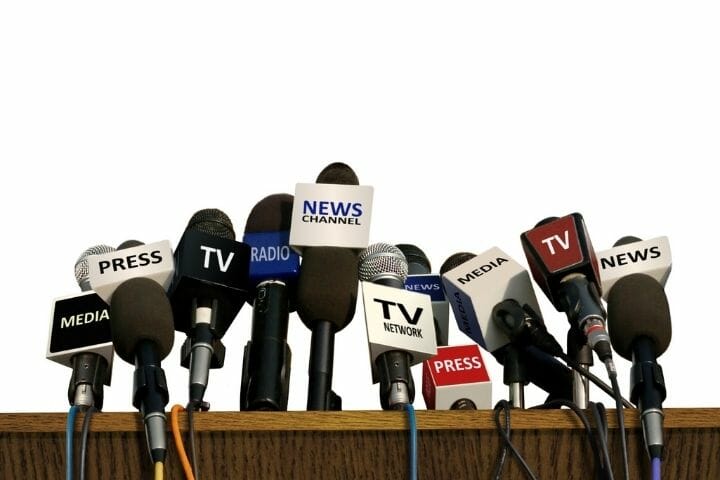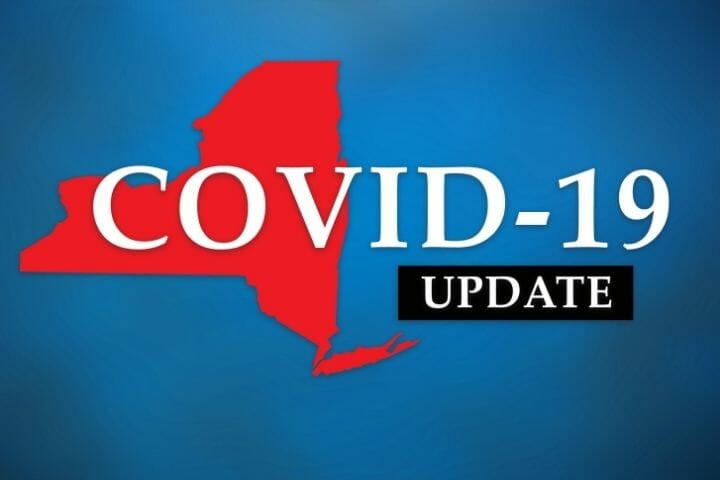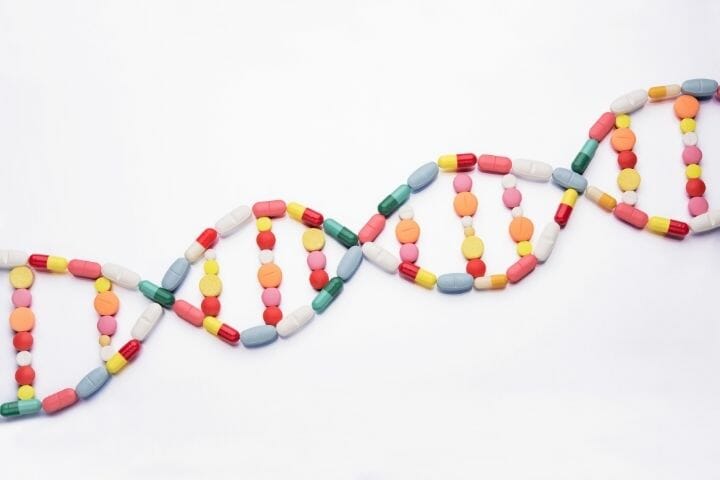How accurately does the media report on healthcare? Is the coverage all good or all bad? How does media coverage impact healthcare? Read on to find out more.
Contents
Healthcare affects every individual, and therefore, it is important to be aware of all policies and services. Media channels, whether print, television, or digital, help people stay alert. But how relevant and impactful is the media coverage?
While the media allows the public to be aware of healthcare facilities and encourages them to be mindful of their medical conditions, it also pushes policymakers to pass healthcare bills for the benefit of the people.

However, not all news is beneficial, especially when biased or subjective. To learn more about the pros and cons of media coverage of healthcare, please keep reading.
How Can the Media Positively Affect Healthcare?
Media coverage can positively impact the healthcare industry, particularly in the way that the public views and understands health schemes and facilities. Print, television, and digital media have brought important news regarding medicine and medical conditions to the forefront.
Journalists working the healthcare beat have helped much of the public understand facts better and become more alert about their conditions. Mass media coverage allows people to know about new research and treatments, benefiting those suffering from specific diseases.
Not everyone has the privilege of studying medical journals. Therefore, articles in newspapers or videos on the television or internet are the next best sources of knowledge.
You might like to read: Awesome Senior Focussed Blogs
Positive Impact of Media on Mental Healthcare
In recent years, there has been a lot of education and talk surrounding mental health. Earlier, one’s mental health was not considered an essential aspect of one’s medical history. Thus, the general public, and even some healthcare professionals, often overlooked its impact on overall health.
Lately, there has been an influx of media coverage of mental healthcare. While not all of it has been positive, some news has helped people realize the importance of mental healthcare.
In the US and Australia, media coverage is mostly positive, highlighting the care available for those who suffer from mental health issues. However, in the UK, most news reports focus on the negatives or the lack of mental healthcare.

The positive impact is only seen through coverage of conferences on mental health. Now, the negative news also serves a purpose. While positive media coverage on mental healthcare encourages people to believe in therapy and other treatment plans, the negative news exposes areas that need reworking.
Media reports on mental healthcare also help to attract research on the subject. However, there is still room for the coverage to evolve. While articles have been published, the media need to focus on healthcare plans for patients dealing with mental health issues.
News that points out the state of mental healthcare in the country can influence the public to seek healthcare and policymakers to effect change in areas where it is required.
Positive Impact of Media on Healthcare Policy Making
If you want to look at one of the most significant contributions of media coverage that positively impacts healthcare, then it would be policy-making. Media interventions, when carefully planned, can influence healthcare policy-making processes.
Media channels curate news that aims to educate the public regarding healthcare facilities and how new policies can affect the current condition.
The news shapes public opinion, and this can put pressure on policymakers. Media interventions through press agendas allow the public to become more aware of healthcare policies. Reports help point out the inadequacies in public welfare and health and thus mobilize policymakers to create effective plans.
You might like to read: Standard Precautions In A Nursing Home To Prevent Spread Of Covid-19

Media coverage of healthcare policies mostly serves as an awareness tool that usually does more good than harm. News reports alert the people about the healthcare industry and help the policymakers be more aware of what the public needs.
Media interventions and coverage can prove to be successful if they can advocate for healthcare policies that will improve the quality of life for the public. However, it is important to note that, at times, media interventions may sway public opinion or the opposition’s opinion away from policy advocacy, which can lead to a healthcare bill not getting passed.
Now, if this is not in the interest of the general public, then that will cause problems. But most of the time, popular, unbiased media outlets have provided objective insight on healthcare policy-making.
Media Coverage on Early Detection Testing
Testing is necessary for accurate diagnosis. Doctors often encourage their patients to get tested before prescribing medication or deciding on a treatment plan. Now, there are a few tests that you can do early on to check if there are any symptoms of a particular disease.
Early detection tests can be for common diseases or serious medical conditions like cancer, HIV, Alzheimer’s, and more. Early detection tests are good for quick diagnosis and treatment, which often saves a patient’s life or gives them back their quality of life. However, there is also a risk of overdiagnosis.
Now, why is overdiagnosis an issue, and what does the media have to do with it? When you opt for an early detection test, only certain aspects are being tested, such as urine and blood culture.
If any symptoms are detected, doctors should not confirm the medical condition without considering the medical history, actual onset of symptoms, and condition of other parts of the body. Therefore, it is necessary to understand that early detection tests are only the first steps towards diagnosis and treatment.
You might like to read: How To File A Complaint Against A Home Healthcare Agency

The media often promotes the need for early detection tests, mainly to raise awareness among the general public. Certain media outlets may also do so as a part of a testing center’s promotional package or because of recent research. However, critical reporting on early detection tests needs to involve both the good and the bad, but it rarely does so.
Most journalists tend to focus on the benefits of these tests rather than providing an objective view that includes the drawbacks. While it is true that a section of the public will reject the tests if any negatives are present, it is still important to provide all information available.
So what happens if the media covers only the positives of early detection tests? Overdiagnosis is a significant consequence of such promotion, but media coverage can also lead to unnecessary fears. Critical reporting has taken a backseat with the “clickbait culture” on many occasions.
Journalists need to be more careful of this when reporting about healthcare. Suppose the majority of the public is convinced that early detection testing is essential. In that case, they may rush to test centers despite having a healthy lifestyle. This can cause a lot of panic and even logistical issues for the clinics and hospitals.
Therefore, it is important to communicate all information about such tests effectively. Now, this is not to say that early detection is not important. It is crucial, but you should only opt for it after understanding every aspect of your health or if recommended by a doctor.
Media Coverage on Covid-19 Healthcare
The Covid-19 pandemic has affected too many people in almost every part of the world. Media coverage of the pandemic has been instrumental in providing information about statistical data and rules and regulations related to Covid-19 healthcare.
However, analysis of media coverage of Covid-19 healthcare has revealed that most news articles focus on updates from the World Health Organization (WHO), instead of giving any suggestions that help people cope or encouraging them to stay indoors and practice social distancing.

You might like to read: Juvenile Arthritis Statistics: Nearly 300,000 Children Affected!
About 40% of news reports about treatments provide wrong information that misleads the public. This is incredibly harmful, particularly because the pandemic has proved to be quite difficult to control.
When it comes to coverage of Covid-19 healthcare, there is a need for evidence-based reports and actionable insights. The public largely depends on the media to provide information, and therefore, journalists should do so responsibly. But, despite the spread of misinformation, several media outlets have focused on the coverage of healthcare news from credible sources and have suggested encouraging actions to the public.
Does the Media Provide Adequate Information on Healthcare Research?
For the public, the media is the easiest way to access information on healthcare research. Media channels and newspapers are responsible for sourcing information and breaking it down into simpler terms for people to understand. However, the media’s perception of the research can also influence and shape the public’s perception.
Now, this may lead to issues for the public. It may be difficult to grasp the concept of the research fully. It becomes easy to focus on just one aspect, usually the one that is seen in news reports, and to ignore the other consequences or factors associated with the research.
Media Reports on Genetic Research
Healthcare research involves evolving topics in medicine, drug testing, and clinical trials. In the past decade, there have been significant studies on genetics. However, it being an advanced research topic, media coverage has often been superficial, which has led to people being confused and often distrusting the work and its impact.

You might like to read: How Have the Causes of US Deaths Changed Greatly Over the Past 100 Years? some Senior Focussed Blogs
A paper published in 2013 surveyed the effects of media coverage on and consequent public reaction to genetic research. According to the experts, despite the mass media being the primary source for information on healthcare research, the public exposed to that information appears to be misinformed.
While reporting on genetic research, media outlets have left out crucial details. One area where such elimination has been noted is the discovery of the effects of susceptibility genes. Major susceptibility genes found in cases of diseases like prostate cancer or breast cancer are usually only found in those experiencing early onset.
They may also be present if you have a family history of the disease. However, when the media fails to clarify this point, it may lead you to believe that major susceptibility genes pertain to every individual suffering from a particular medical condition.
Reports about recent advancements in genetic engineering and its related fields often highlight the negatives of the research rather than its positive aspects. People cannot see beyond the potential dangers or weigh the pros and cons and thus fear the effects or applications of such research.
Media Reports on Statin Use and Research
There has been much speculation about the risk of statins in healthcare and whether the benefits are actually greater. As expected, there has also been adequate media coverage on the controversy, which has impacted how most people view the use of statins today.
In 2016, a research paper focused on how media coverage affects the use of statins. The survey was done on patients who had recently become eligible for statin use due to primary and secondary cardiovascular disease. However, no evidence was found regarding a patient’s inclination towards statin use during a period of intense media coverage.
But, it was noted that after being exposed to media coverage on statins, those who were already using them were often quick to stop the dosage. This was observed especially in older patients who had been prescribed statins for a longer period. Now, suppose you completely stop using statins. In that case, all primary and secondary treatments will halt, and you may become prone to relapses.
In reporting about medical research, the media need to understand what is newsworthy and what is not. While a journalist must provide accurate news on specific topics, it is also important to be sensitive to people’s perceptions.
Journalists and media outlets focus on ongoing research that supports a specific healthcare scheme or medical condition. However, the research may be early or undergoing clinical trials. So it is crucial to provide that clarity.
You might like to read: Guide to Helping Seniors with Technology
Wrap Up
Traditional and digital media needs to be critical and sensitive while reporting on healthcare. Biased journalism is dangerous for any news, but it can lead to fatal consequences in healthcare.

Therefore, journalists also need to be aware of how they cover healthcare events and improve their reporting. This brings us to the end of the article. If you find it informative, don’t forget to share your thoughts and encourage others to give this a read.
We hope this article will serve as a means for you to understand that the media can be both a positive and a negative force on healthcare policy and implementation. Media reports need to be done with care because they can influence people and help formulate the right policy.
But in some cases, the media tends to highlight issues that are insignificant and unnecessary, which leads to people abandoning the perfectly good policy. Therefore, it’s important that media reporting be left in balanced and careful hands.
